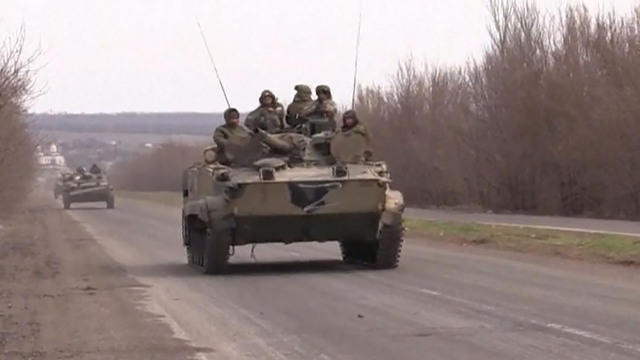▶ Watch Video: Why Russia’s military operations have fallen short of expectations
Russia took a step further Tuesday in its escalating row with Israel by claiming that the country’s leadership supported the “neo-Nazi regime” in Ukraine.
In an 800-word essay, the Russian Foreign Ministry doubled down on controversial remarks made earlier by Foreign Minister Sergey Lavrov and said that Ukrainian President Volodymyr Zelenskyy’s Jewish origins are “not a guarantee against rampant neo-Nazism in the country.”
It provided isolated examples of cooperation between Jewish collaborators and Nazis during the Holocaust years.
The verbal spat between Russia and Israel began Sunday when Lavrov was asked how Russia could claim it is “de-Nazifying” Ukraine through its invasion when Zelenskyy is himself Jewish.
“I may be mistaken, but Adolf Hitler had Jewish blood, too. [The fact that Zelenskyy is Jewish] means absolutely nothing. The wise Jewish people say that the most ardent anti-Semites are usually Jews,” Lavrov said in an interview on Italian TV.
Israel chastised Lavrov for these remarks, saying this is an “unforgivable” falsehood that undermines the horrors of the Holocaust. German officials also decried Lavrov’s comments as “absurd” propaganda.
The Israeli foreign ministry summoned the Russian ambassador and demanded an apology on Monday.
“Jews did not murder themselves in the Holocaust,” said Israeli Foreign Minister Yair Lapid. “The lowest level of racism against Jews is to accuse Jews themselves of anti-semitism.”
But on Tuesday, the Russian Foreign Ministry reiterated Lavrov’s point that Zelenskyy’s origins do not contradict Moscow’s claims that Ukraine is run by neo-Nazis.
“The argument is not only untenable but also wily. History, unfortunately, knows tragic examples of cooperation between Jews and the Nazis,” the statement read.
“The historical tragedy lies in the fact that if during the Second World War some Jews were forced to participate in crimes, while Zelenskyy, speculates on his roots consciously and voluntarily,” the ministry said, further claiming that the Ukrainian leader uses his origins as “cover” for himself and “natural neo-Nazis.”
Zelenskyy weighed in on Lavrov’s comments in a video address published late Monday.
“These words mean that Russia’s top diplomat is transferring blame for the crimes of the Nazis to the Jewish people. [I’m] speechless,” Zelenskyy said.
“Such an anti-Semitic attack by [a Russian] minister means that they have forgotten all the lessons of the Second World War. Or maybe they never learned those lessons,” Zelenskyy said. “Therefore, the question is — will the Israeli ambassador remain in Moscow, knowing their position, and will relations with Russia remain as usual?”
Israel has voiced support for Ukraine after Russia launched an invasion on Feb. 24 but refrained from directly criticizing the Kremlin and joined the Western effort to sanction Russian oligarchs, some of whom based themselves in the country after fleeing Moscow.
Russia is also an essential powerbroker in Israel’s neighbor Syria. Russian speakers also amount to roughly 15% of the Israeli population. Most emigrated from the former Soviet Union and claimed citizenship through their heritage. Israel’s response to the attack on Ukraine has prompted calls to scrutinize the role wealthy Israeli-Russians play in the country’s political scene.


































